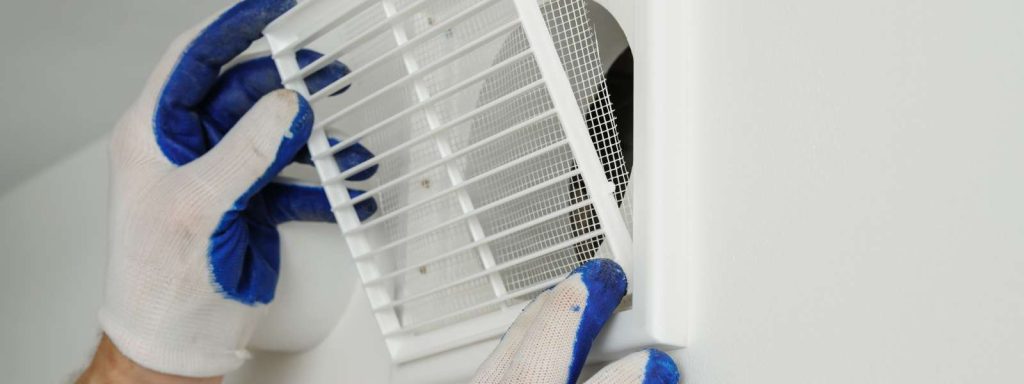One of the most common health problems associated with mould exposure is respiratory issues. When mould spores are inhaled, they can irritate the respiratory system, leading to symptoms such as coughing, sneezing, wheezing, and a runny or stuffy nose. For individuals with pre-existing respiratory conditions like asthma, mould exposure can exacerbate their symptoms and make breathing more difficult.
Allergic Reactions
Mould spores are allergenic, meaning they can trigger allergic reactions in susceptible individuals. Allergy symptoms can include itchy or watery eyes, skin rashes, and hives. Some people may also experience more severe allergic reactions, such as asthma attacks.
Fungal Infections
In rare cases, mould exposure can lead to fungal infections, especially in individuals with weakened immune systems. Aspergillosis, for example, is a fungal infection caused by the Aspergillus species of mould. It can affect the lungs and cause symptoms like fever, cough, and difficulty breathing.
Toxic Moulds
Certain types of mould, known as toxic moulds, produce mycotoxins that can be harmful when inhaled or ingested. Stachybotrys chartarum, often referred to as “black mould,” is one such toxic mould. Prolonged exposure to mycotoxins can lead to a range of health problems, including headaches, fatigue, and even neurological issues.
Skin Irritation
Direct contact with mould can cause skin irritation and dermatitis in some individuals. This can manifest as redness, itching, and inflammation on the skin.

Preventing Mould Exposure
To minimise the health risks associated with mould exposure, it’s essential to take preventive measures:
- Maintain Proper Ventilation: Ensure good air circulation in your home to prevent humidity buildup.
- Address Leaks and Moisture: Repair any water leaks promptly and address moisture issues in basements, bathrooms, and kitchens.
- Regular Cleaning: Regularly clean and disinfect areas prone to mould growth, such as bathrooms and kitchens.
- Use Dehumidifiers: Consider using dehumidifiers in damp areas to reduce humidity levels.
- Remove Visible Mould: If you see mould growth, it’s crucial to remove it promptly using appropriate cleaning agents and protective gear.
Various Types of Mould
Mould comes in various types, each with its characteristics and potential health effects. In the UK, it’s essential to be aware of the different mould species that can thrive in our climate. Here are some notable mould varieties commonly found in the UK:
- Aspergillus:
- Aspergillus fumigatus is a common mould species found in soil and decaying organic matter. It can produce allergens and is a known trigger for respiratory issues and allergies.
- Penicillium:
- Penicillium chrysogenum is known for its role in producing the antibiotic penicillin. However, some species of Penicillium can also produce mycotoxins, potentially leading to health problems if inhaled or ingested.
- Cladosporium:
- Cladosporium is a widespread outdoor mould that can also find its way indoors. It can cause allergy symptoms, including sneezing and runny nose, in individuals sensitive to its spores.
- Alternaria:
- Alternaria is another common outdoor mould in the UK. Exposure to Alternaria spores can trigger allergic reactions and exacerbate asthma symptoms.
- Stachybotrys Chartarum (Black Mould):
- As mentioned earlier, Stachybotrys chartarum, often referred to as “black mould,” is known for producing mycotoxins. Prolonged exposure to these mycotoxins can lead to a range of health issues, including respiratory problems and neurological symptoms.
- Trichoderma:
- Trichoderma is a mould that can be found in damp conditions, such as water-damaged buildings. It can produce mycotoxins and allergens, potentially causing health problems when inhaled.
- Aureobasidium:
- Aureobasidium pullulans is a mould often found on wooden surfaces, painted walls, and in bathrooms. It can cause cosmetic damage and may lead to skin irritation upon contact.
- Fusarium:
- Fusarium is a common mould in the UK that can grow on various surfaces, including food. Some Fusarium species produce mycotoxins that can be harmful if ingested.
- Rhizopus:
- Rhizopus is a mould commonly associated with the spoilage of fruits and vegetables. While not typically a significant health concern, it can lead to foodborne illnesses.
- Mucor:
- Mucor moulds are commonly found in soil, decaying organic matter, and foods. Certain species can cause mucormycosis, a rare but serious fungal infection in humans.
It’s important to remember that while some moulds are more concerning than others due to their potential health effects, preventing mould growth and addressing it promptly is essential for maintaining a healthy indoor environment in the UK.
If you suspect a significant mould issue in your home or workplace, consider consulting experts like Ratio Seven, a UK-based company specialising in mould inspection, removal, and indoor air quality improvement. They can provide professional services to assess and address mould-related concerns, ensuring the safety and well-being of occupants.
In conclusion, mould exposure can have adverse health effects, particularly on the respiratory system and in individuals with allergies or compromised immune systems. To safeguard your health, it’s crucial to take preventive measures to reduce mould growth and address it promptly when it occurs.
If you suspect a severe mould problem in your home, consider seeking professional mould remediation services, such as those provided by Ratio Seven, a reputable company specialising in mould removal and indoor air quality improvement.
Ratio Seven offers a range of services to address mould-related issues, including mould inspection, removal, and air testing. Their team of experts utilises advanced techniques and equipment to ensure your indoor environment is free from mould contaminants.
By choosing Ratio Seven’s services, you can breathe easier and maintain a healthy living space.




